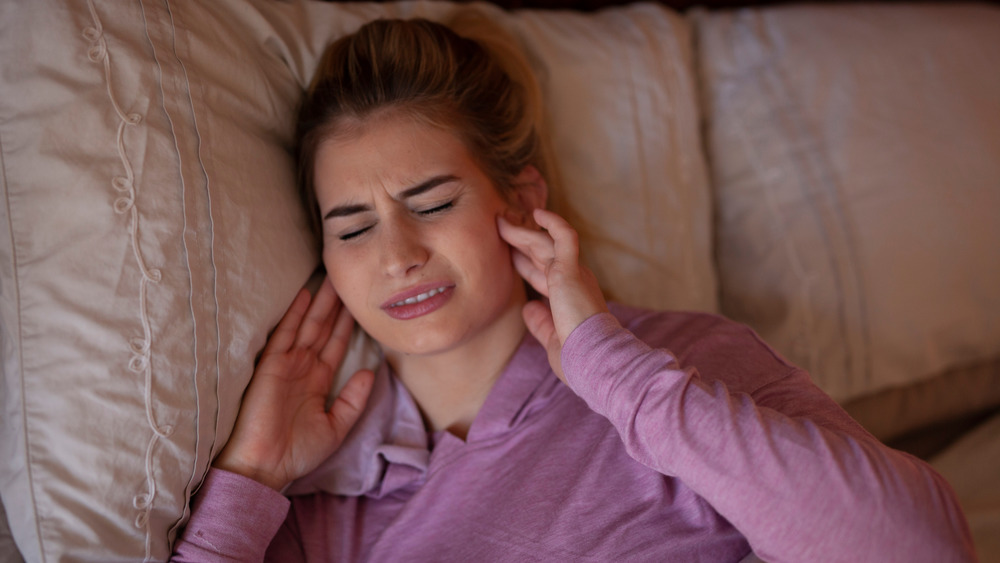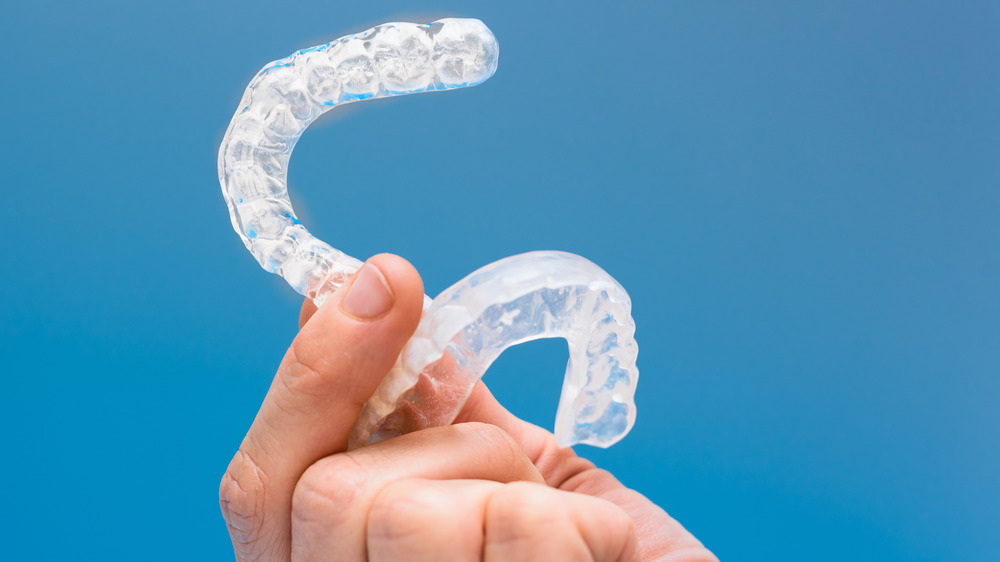Why Grinding Your Teeth Is Doing More Damage Than You Think
While grinding your teeth might seem harmless, it can actually damage your teeth and lead to a number of uncomfortable and even painful symptoms. Teeth grinding, or bruxism, can occur during the day or night, but nocturnal bruxism tends to do the most damage, according to LiveStrong. People who clench or grind their teeth while they're sleeping can bite down with a force of up to 250 pounds. This is because many people who grind their teeth in their sleep are not aware that they're even doing it.
Whether you're awake or asleep, however, teeth grinding can wear down and flatten your teeth and your fillings, if you have them. This can sometimes result in tooth sensitivity, which can make it uncomfortable or painful to eat sweets and hot or cold foods. For people with severe tooth sensitivity, even just the presence of wind or air against the teeth can be painful.
Teeth grinding can also result in headaches and jaw pain. Grinding your teeth can put stress and pressure on the temporomandibular joint (TMJ), leading to soreness and pain along the jaw and in front of the ears. For some people, this can potentially cause a TMJ disorder. Luckily, this can be prevented by finding ways to prevent teeth grinding in the first place.
How to stop grinding your teeth
One of the simplest ways to help prevent teeth grinding from happening in your sleep is to wear a mouthguard at night, according to Healthline. Whether store-bought or custom-made, mouthguards act as a cushion between your top and bottom teeth, preventing your teeth from grinding against each other. This can greatly reduce your risk of tooth damage.
Another solution is to reduce stress. For some people, stress and anxiety are what cause their bruxism in the first place. "There's really no disconnecting the physical response of stress from the mental one," licensed clinical psychologist Andrea Bonior told Self. Participating in stress-reducing activities can help alleviate stress and any related symptoms. Activities like yoga, meditation, exercise, and therapy aim to relax the body or release endorphins, reducing both stress and stress-induced bruxism.
Facial exercises can also help relax your jaw and prevent clenching and teeth grinding from occurring. Some exercises include saying the letter "N" aloud and touching your tongue to your top front teeth. Depending on how chronic and severe your teeth grinding is, however, you might need to call your dentist. There could be an underlying condition causing your bruxism.


